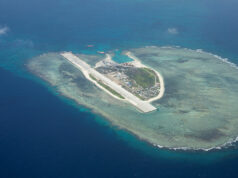Group of more than 300 IP members rescued from suspected human trafficking syndicate

A GROUP of more than 300 members of an indigenous people (IP) community originally from the country’s south, suspected to have been brought to Manila “by a syndicate for manual labor,” were rescued Friday upon their arrival at the port.
The Inter-Agency Council Against Trafficking, in a statement on Sunday, said the 303 people from the Badjao ethnic community arrived at the Manila North Harbour Seaport on June 4, where they were immediately “secured and transferred” to a processing area for coronavirus testing.
A Philippine Navy vessel left the Manila port Sunday to bring 282 of them back to Zamboanga. The remaining 21 will “stay due to health reasons,” according to the council.
Before their arrival in Manila, the Women and Children Protection Center’s unit in Mindanao alerted authorities that some 340 Badjao members were reported to be leaving for Manila via sea travel “sponsored by an undisclosed individual.”
Anti-trafficking council Administrative Officer Nadine Bernardino said social workers and police officers interviewed 271 of those who arrived in Manila, most of whom claimed to be visiting a family member.
The Badjao are a seafaring community and traditionally lived in houseboats, according to the Bangsamoro Commission for the Preservation of Cultural Heritage.
They have long been the most marginalized ethnic group in the country and continue to be displaced by a growing population and fishing industry. — Bianca Angelica D. Añago



